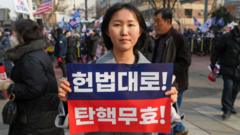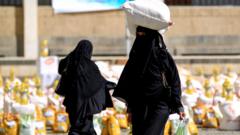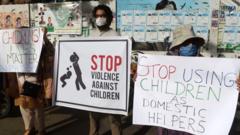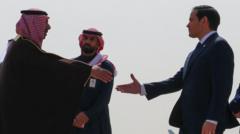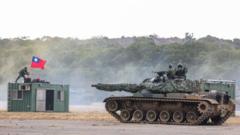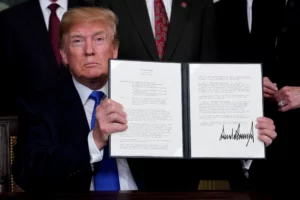**The article explores East Timor's economic challenges, the leadership of President José Ramos-Horta, and the country's dependence on external assistance while highlighting its rich history and aspirations for the future.**
**East Timor: Challenges of Sustainability for a Young Nation**

**East Timor: Challenges of Sustainability for a Young Nation**
**The fight against poverty and dependence on oil and gas defines East Timor's ongoing quest for stability.**
In September, vendors at the Taibesi market in Dili, East Timor, showcased the bustling daily life in a nation that struggles economically despite its emergence as a stable democracy since gaining independence in 2002. Currently, East Timor grapples with significant financial instability, as nearly 40% of its population lives in poverty and the economy largely leans on declining oil and gas revenues.
At the center of this ongoing struggle is President José Ramos-Horta, who at 75 years old remains a dedicated advocate for his homeland. Once a revolutionary figure on the global stage, he now actively seeks help from countries like China and Vietnam, clamoring for solutions to agricultural stagnation, food security, and poverty. His aspirations also extend to the United Arab Emirates, where he envisions the development of student dormitories to uplift his nation's education standards.
East Timor is home to approximately 1.4 million individuals, sharing an island with Indonesia and positioned near Australia’s northern coast. This country, deeply marked by its colonization by Portugal and subsequent brutal occupation by Indonesia, has a tumultuous history. While it has made strides towards democracy, Ramos-Horta acknowledges that substantial challenges remain unanswered. He remarked, "In 22 years...we should have resolved child poverty, child malnutrition, [and] extreme poverty. So that has been a failure."
Reflecting on its unique circumstances, he stated, “No country in Southeast Asia or in Africa began as we did, from ashes, from total destruction.” Despite a hopeful outlook as a democratic nation, the looming crisis of poverty and economic dependency casts a shadow over East Timor's progress. The country's emerging position on the world stage is riddled with complexities and the need for sustained international support to achieve lasting prosperity and alleviate the struggles of its most vulnerable populations.
At the center of this ongoing struggle is President José Ramos-Horta, who at 75 years old remains a dedicated advocate for his homeland. Once a revolutionary figure on the global stage, he now actively seeks help from countries like China and Vietnam, clamoring for solutions to agricultural stagnation, food security, and poverty. His aspirations also extend to the United Arab Emirates, where he envisions the development of student dormitories to uplift his nation's education standards.
East Timor is home to approximately 1.4 million individuals, sharing an island with Indonesia and positioned near Australia’s northern coast. This country, deeply marked by its colonization by Portugal and subsequent brutal occupation by Indonesia, has a tumultuous history. While it has made strides towards democracy, Ramos-Horta acknowledges that substantial challenges remain unanswered. He remarked, "In 22 years...we should have resolved child poverty, child malnutrition, [and] extreme poverty. So that has been a failure."
Reflecting on its unique circumstances, he stated, “No country in Southeast Asia or in Africa began as we did, from ashes, from total destruction.” Despite a hopeful outlook as a democratic nation, the looming crisis of poverty and economic dependency casts a shadow over East Timor's progress. The country's emerging position on the world stage is riddled with complexities and the need for sustained international support to achieve lasting prosperity and alleviate the struggles of its most vulnerable populations.


